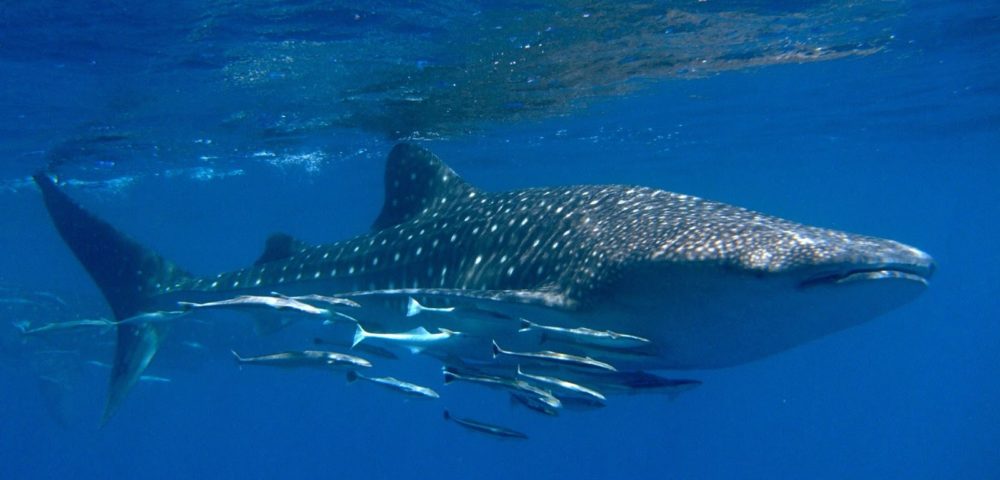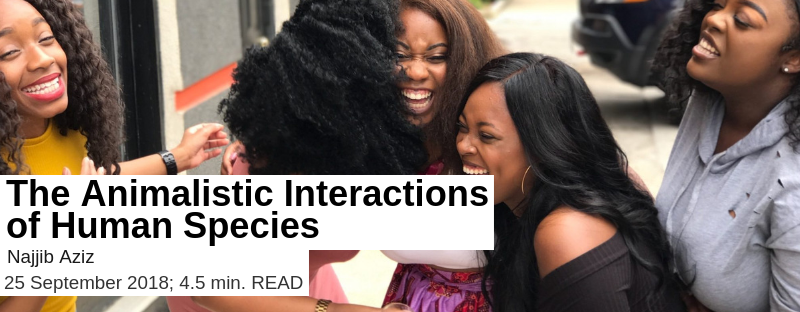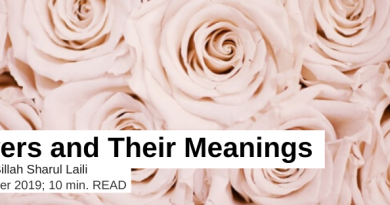The Animalistic Interactions of Human Species
Biological interaction of animals can be largely divided into 4 different types i.e. commensalism, mutualism, competition and lastly, a grouping that includes predation and parasitism. These interactions are explained by how they affect by having a positive or negative relationship of the species in question.
A simplistic understanding on the interactions are given in the table below, as provided by the Global Change Course of the University of Michigan.
Type of Interaction | Sign | Effects |
Mutualism | +/+ | both species benefit from interaction |
Commensalism | +/0 | one species benefits, one unaffected |
Competition | -/- | each species affected negatively |
Predation, Parasitism | +/- | one species benefits, one is disadvantaged |
Without realising, these relationships are also observable in human species interactions. Our behaviours within societal context can then be basically be divided into these 4 simple categories. Though, we are self-aware a number of these interactions can be such a norm for some people due to how they think that it would increase their “ecological” fitness. The difference is that, unlike animals, we are able to choose which types of relationship would be the most beneficial at that point of time.
Like the suckerfish remoras and sharks mutualism for an example. This type of relationship has similarities to a classic case of a student that normally portrayed in the films who helps the school hooligan in improving his/ her grades in exchange for protection, and therefore, would not be subjected to bullying by others. Even though, after a while, the hooligan might not need help with schoolwork anymore, and is grateful towards the student who offered the help and thus, their relationship changes to the second type that is, commensalism.

It is always talked about the spirit of competition, but how does it negatively affect both sides of society? In animal world, competition is about maximising the chances of survivorship. However, for human, our competition more often than not is focusing in increasing our social status. What we don’t realise is that something as simple as even competition in sports, striving for better grades in class, or buying the recent released items or products in the market can be taxing. There is an expense of energy, money, time and even, emotions. Despite of the downside of competition, a number of people hardly see it as a form of detrimental behaviour. In some cases, it has led to bankruptcy, depression and in a worst case scenario, death.
A parasitic nematode would make your stomach churn and most importantly, stealing all the goodness due to its host. The same analogy can be said in cases of parasitic behaviour in human. One typical case that society always heard of, is a person who leeches money off their partners and mentally torture them with psychological trickery that would even put the tapeworm to shame. This can be said also about predatory behaviour of recent light in the media relating to the abuse of children by the men of faith or family members. However, unlike human, animals act predatorily because they need to be in order to live. What then, is the motive for human to be parasitic? In comparison, parasitism in animals has more sense.

As a trained zoologist, I say we can learn a lot about human behaviour by simply observing the animals. The only thing that makes us different is that we can choose how we interact with others. I hope this article will let you ponder then, the kind of relationship that you had with your partner, spouse, friends, or even the guy who you buy your chicken rice from. Then, it would not be a surprise if one day you see someone or even yourself, as a fluke.
both species benefit from interaction

Najjib Aziz is currently work as a tech consultant in Australia, but also has higher degree in zoology from University of Tasmania. An endless learner, he has done a diverse range of vocation not limited to military medicine, paramedic, venturing into food and beverages industry and university tutor.
Contact info: najjib.aziz@gmail.com




